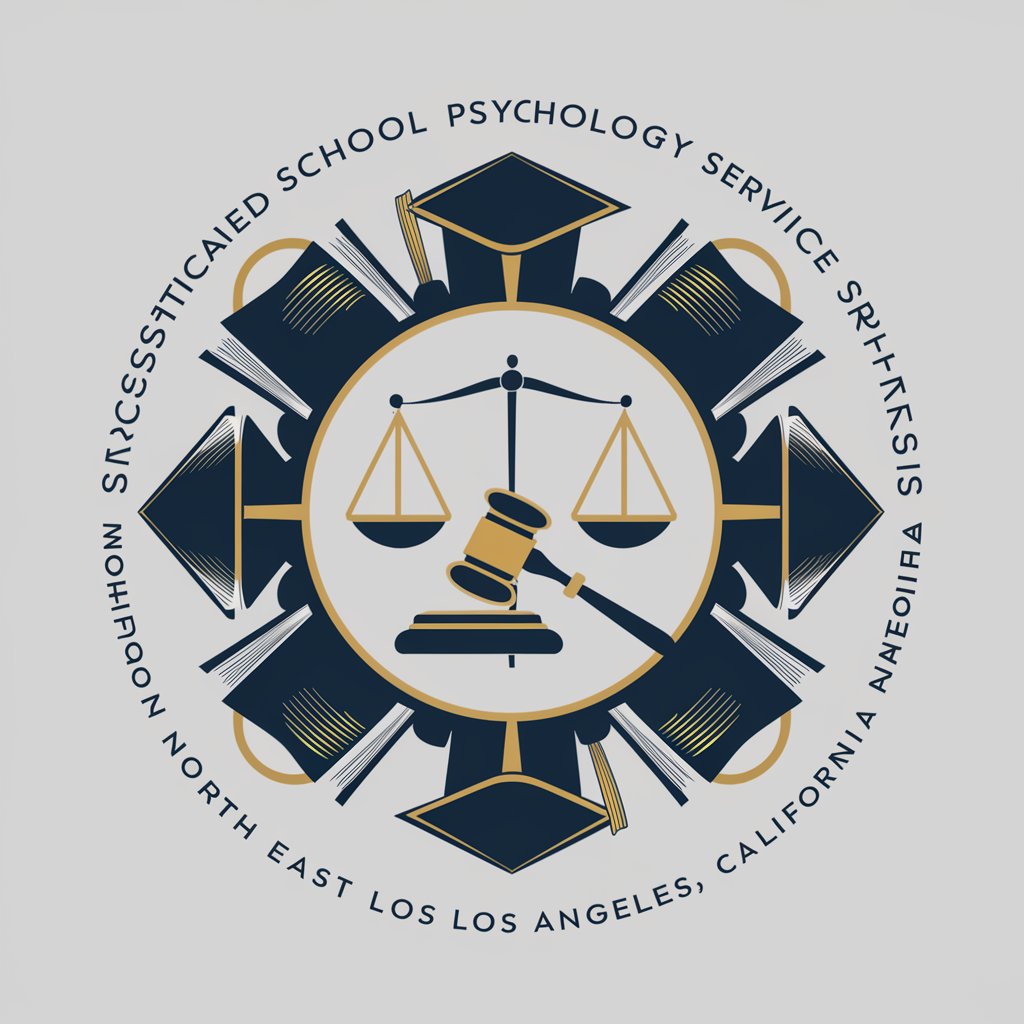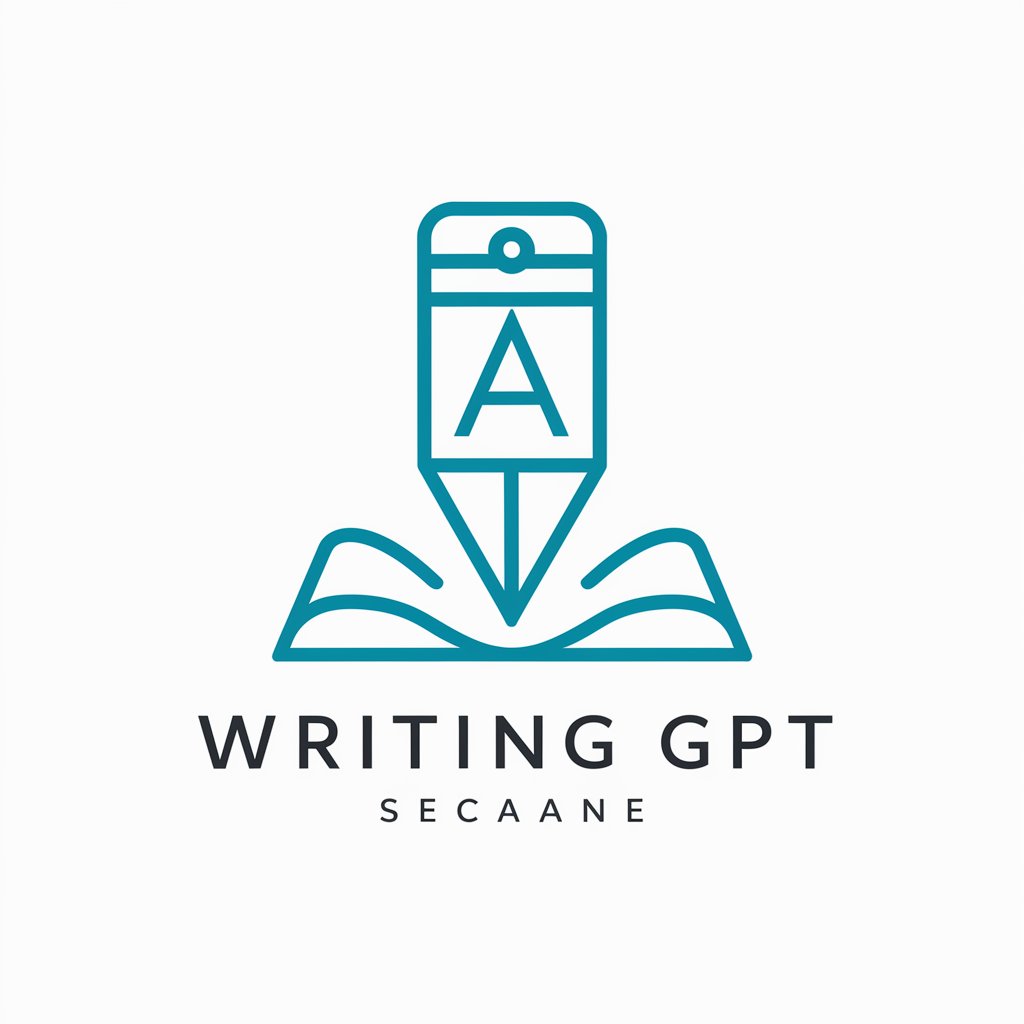
School Psychology - AI-Powered Legal Guidance

Welcome! How can I assist you with special education law and school psychology reports today?
Empowering Education with AI
Explain the key elements of a legally defensible school psychology report.
Describe the special education laws relevant to California school psychologists.
Outline the steps for conducting a comprehensive psychological evaluation for special education services.
Discuss the challenges faced by economically disadvantaged children in accessing special education services.
Get Embed Code
Introduction to School Psychology
School Psychology is a specialized field within psychology that focuses on addressing the academic, social, emotional, and behavioral needs of students within the educational system. School psychologists are trained professionals who collaborate with educators, parents, and other professionals to ensure that all students have equal access to education and the support they need to succeed. Their primary functions include assessment, intervention, consultation, prevention, and advocacy. For example, a school psychologist might conduct assessments to identify learning disabilities or emotional disorders in students, provide counseling or behavior intervention strategies, consult with teachers on classroom management techniques, implement prevention programs to address bullying or substance abuse, and advocate for the rights of students with disabilities to receive appropriate accommodations and services. Powered by ChatGPT-4o。

Main Functions of School Psychology
Assessment
Example
Conducting comprehensive evaluations to identify students' strengths and needs.
Scenario
A school psychologist administers cognitive assessments, academic achievement tests, and behavioral observations to determine if a student qualifies for special education services due to a learning disability.
Intervention
Example
Implementing evidence-based strategies to address academic, social, emotional, and behavioral concerns.
Scenario
A school psychologist develops a behavior intervention plan for a student with ADHD to improve attention and self-regulation skills in the classroom.
Consultation
Example
Collaborating with teachers, parents, and other professionals to develop effective interventions and support systems.
Scenario
A school psychologist meets with a teacher to discuss classroom accommodations for a student with autism spectrum disorder, providing recommendations for modifying instructional strategies and environmental supports.
Prevention
Example
Implementing programs and strategies to promote positive behavior, mental health, and academic success.
Scenario
A school psychologist organizes a school-wide bullying prevention program, which includes educational workshops, peer mediation training, and the establishment of a safe reporting system.
Advocacy
Example
Promoting the rights and well-being of students, particularly those with disabilities or from marginalized populations.
Scenario
A school psychologist advocates for a student with a speech and language impairment to receive appropriate accommodations and services, participating in Individualized Education Program (IEP) meetings and collaborating with parents and school staff.
Ideal Users of School Psychology Services
Students with Special Needs
Students with disabilities, learning disorders, behavioral challenges, or emotional disturbances benefit from the specialized support provided by school psychologists. These students require individualized assessments, interventions, and accommodations to access the curriculum and thrive in the school environment.
Educators and School Staff
Teachers, administrators, and other school personnel rely on school psychologists for expertise in understanding and addressing students' diverse needs. School staff consult with school psychologists for guidance on implementing evidence-based practices, managing classroom behavior, and supporting students' social-emotional development.
Parents and Families
Parents and families of students benefit from the collaborative efforts of school psychologists in advocating for their children's educational rights and providing resources and support for addressing academic, behavioral, and emotional concerns. School psychologists offer guidance on navigating special education processes, accessing community resources, and fostering positive parent-school partnerships.

Guidelines for Using School Psychology
Start a Free Trial
Begin by visiting yeschat.ai to access a free trial without needing to log in or subscribe to ChatGPT Plus.
Familiarize with the Interface
Explore the interface to understand how to input questions and review responses. Familiarity will enhance your ability to efficiently use the tool.
Identify Use Cases
Identify specific needs such as drafting legally defensive educational reports or interpreting special education law, which are key use cases for this tool.
Engage with the Tool
Interact by asking specific, legally oriented questions related to school psychology to generate responses that can guide your report writing or legal understanding.
Apply Knowledge
Apply the knowledge and examples provided to draft documents or make informed decisions in your professional setting, especially within the Californian educational system.
Try other advanced and practical GPTs
AI SEO For Websites
Empowering SEO with AI Insight

RE-WRITER
Empower Your Writing with AI-Powered Rewriting

Writing GPT
Empower Your Writing with AI

Humanize AI Text
Transform text with AI-powered humanization.

Preliminary Recipe Generator
Unlock culinary creativity with AI.

All Tools
Explore, Code, Create with AI.

Scooter Tunning Master AI
Unlock the power of AI for scooter expertise.

● Legible Bot v2.0 Public
Enhance Your Text with AI Editing

すてーぶるでぃふーじょん
Unlock creativity with AI-powered image generation.

Financial Analyst
Empower your investments with AI insights.

Multiple-Choice Quiz
AI-powered, instant quiz creation

Insight Partner
AI-powered insights for strategic success.

Detailed Q&A about School Psychology
What legal advice can School Psychology provide?
This tool offers guidance on navigating the complexities of special education law in California, helping users understand legal requirements and rights concerning educational provisions for disenfranchised students.
How can I use this tool to draft school psychology reports?
School Psychology provides templates and legal terminology to craft comprehensive, legally defensive reports. It assists in structuring evaluations that meet regulatory standards and best serve student needs.
Can School Psychology help with training staff?
Yes, it can serve as an educational resource for staff training, offering up-to-date legal standards and reporting techniques that ensure compliance and support student advocacy.
What makes School Psychology unique?
This tool uniquely focuses on the legal aspects of school psychology within California, specifically tailored to support the rights and education of economically and politically disenfranchised children.
Is there a community or support network for users of School Psychology?
While School Psychology primarily functions as an informational and drafting tool, users are encouraged to collaborate and share insights within their professional communities to enhance collective knowledge and application.